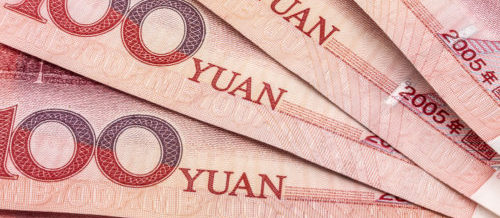Dear Reader,
Taiwan has become ‘the most dangerous flashpoint’ in US–China relations, according to a recent article in The Diplomat.
As the situation in the Taiwan Strait intensifies, the prospect of a shooting war between China and the US cannot be ruled out. But as Jim Rickards explains, another type of war is already playing out.
What are the factors driving it — and what does it mean for investors?
Read on to find out…
|
Until next time, |
|
Shae Russell, |
If the Third World War Starts Soon, It Will Begin Here
The odds of a new world war right now are low, but they’re uncomfortably high relative to where they were six months ago. This is not surprising. The world has been wracked by a coronavirus pandemic and a resulting economic collapse worse than the Great Depression.
Countries must contain the virus and at the same time deal with record unemployment, unprecedented levels of debt, and a broken supply chain that will keep factories closed and workers unemployed even when the worst of the virus is past.
When governments face these kinds of internal difficulties, they often look to external enemies to pick fights with to distract attention and rally their citizens behind the national leadership (despite the dismal economy).
The world has no shortage of hotspots right now, including Syria, Iran, Venezuela, North Korea, and the India-China border. But the most dangerous of all is the Strait of Taiwan, which is the subject of this article by the Taiwan Times.
Learn why a recession in Australia is coming and three steps to ‘recession-proof’ your wealth. Click here to download your free report.
The US, China, and Taiwan
In 1949, the Communists took over mainland China, but the Nationalist forces were not destroyed. Instead, they retreated by sea across the Strait of Taiwan to the island of Taiwan (formerly Formosa). (By the way, when the Nationalists left the mainland, they took a huge amount of China’s artistic and archaeological treasures with them. They’re on display in the National Palace Museum. I highly recommend a visit there if you’re in Taiwan.)
Both the Communists and the Nationalists claim to be the legitimate government of China, even though the Communists obviously control the great majority of the land and population. China has vowed to reclaim Taiwan by force, if necessary.
The US is arming the Taiwanese (as it has for decades). The US has treaties with Taiwan that pledge US support if China tries to invade. A new Taiwanese government has expressed interest in declaring Taiwan an independent country. That would trigger a Chinese invasion and a US response.
The US Seventh Fleet is on patrol in the straits that separate the mainland and Taiwan. Let’s hope nothing comes of this. But it would be ironic if a virus that produced death around the world led to more death by provoking the Chinese into launching an invasion they have dreamed about for over 70 years.
Before a shooting war begins, a financial war will play out
A shooting war between China and the US may or may not break out, but the financial war is already here. The financial war has been going on a long time, but it’s escalating, and some large systemic shocks may be next. Investors need to be prepared.
From 2007 to 2010, China was devaluing its currency to promote exports and get as many dollars as it could. The US fought this and finally the two sides agreed on a stable exchange rate around seven yuan to one US dollar.
China cheated twice (in August 2015 and again in December 2015). Both times, US stock markets tanked. Stability was restored in February 2016, with the ‘Shanghai Accord’ worked out by Janet Yellen. Then came the trade wars in 2018. Again, stability was restored in January 2020 with the ‘Phase One’ trade deal.
Now, with the global pandemic, a new great depression, and a US–China blame game, all bets are off.
Dangerous ground for investors
Reuters recently described how China just broke its treaty obligations with the people of Hong Kong and is imposing strict Communist rule on Hong Kong. The US will likely remove special trade privileges from Hong Kong because it is no longer ‘autonomous’ as required for the special status.
China is weakening its currency again (the yuan is already down to 7.15-to-1) and is threatening the US with an alternative currency to the dollar if the US imposes sanctions on Hong Kong.
The Phase One trade deal is hanging by a thread.
Some of this is bluster and some of it is serious, but it’s all dangerous ground for investors.
We’ve been warning readers of Strategic Intelligence Australia to get out of Chinese investments for a long time and now that warning applies to Hong Kong also. The real blow will come with regard to the Hong Kong dollar. It’s a separate currency supported by a currency board and backed up with reserves. The idea is to maintain a stable exchange rate to the dollar.
But China would love to get its hands on those hard currency reserves and might not care about the exchange rate if the US walked away from its trading relationship. China might even favour getting rid of the Hong Kong dollar because it’s one more way to deprive Hong Kong of what’s left of its independence.
If the Hong Kong dollar went (and it may), this would lead to a crash in Hong Kong equities and real estate that would leave investors in ruins. There’s still time to get out of Hong Kong investments, but the clock is ticking.
|
All the best, |
 |
|
Jim Rickards, |

